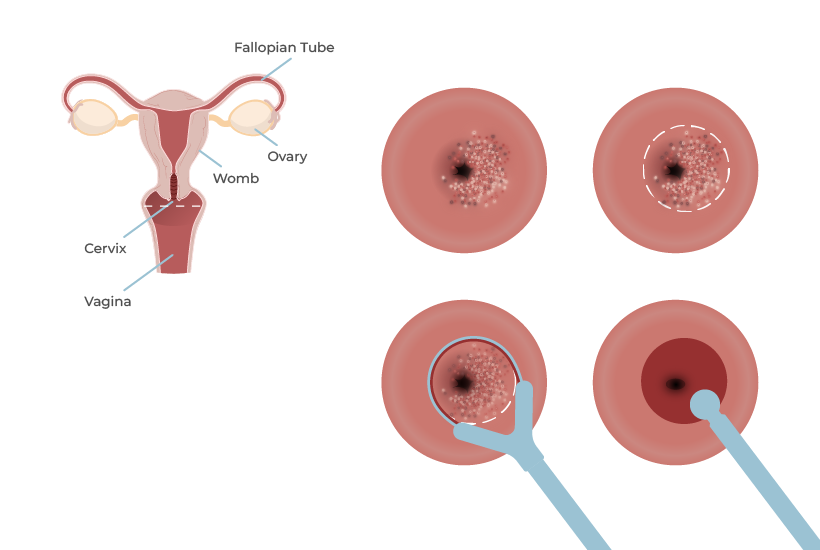What is a LLETZ Procedure?
LLETZ (Large Loop Excision of the Transformation Zone), also known as loop diathermy, LEEP, loop excision, or loop biopsy, is the most common treatment for those with high-grade precancerous cells of the cervix or persistent low grade precancerous cells. This procedure uses a heated wire loop to remove abnormal cells, significantly reducing the risk of cervical cancer.







